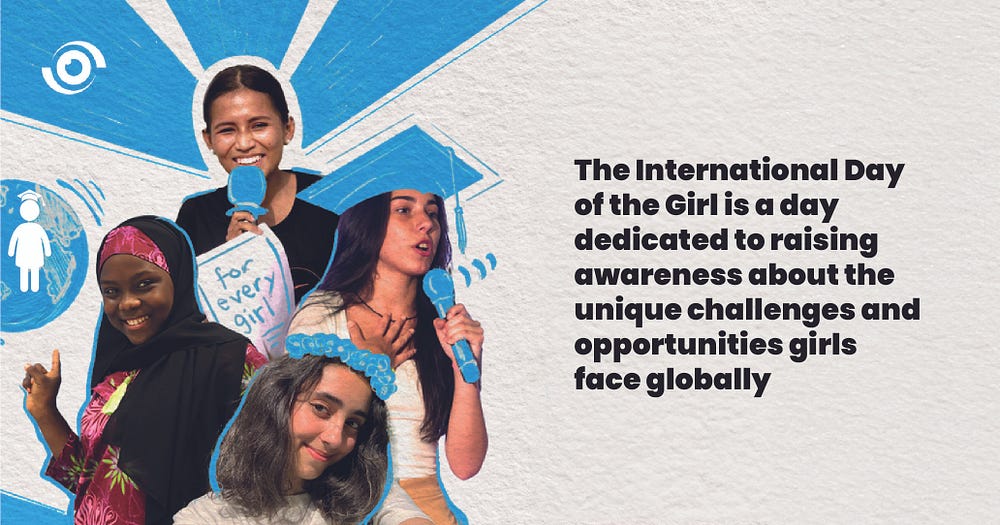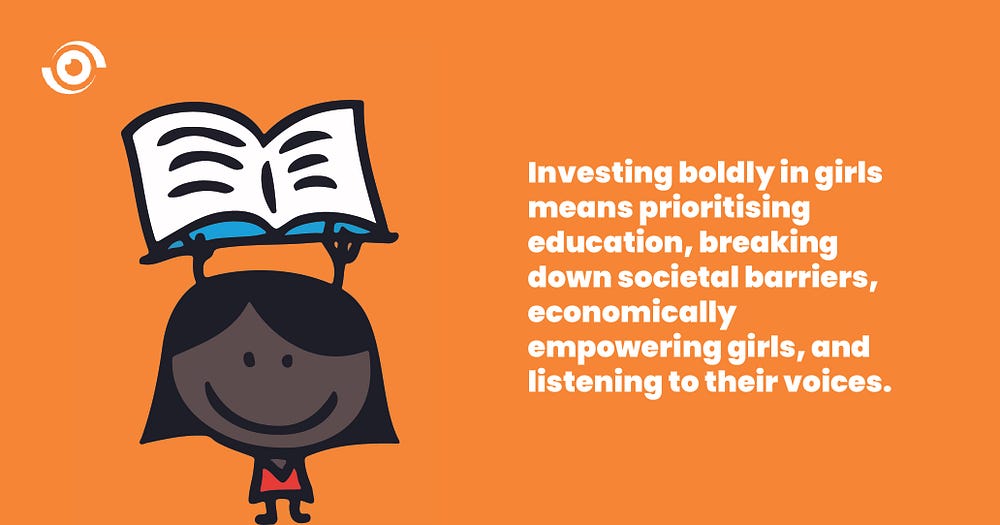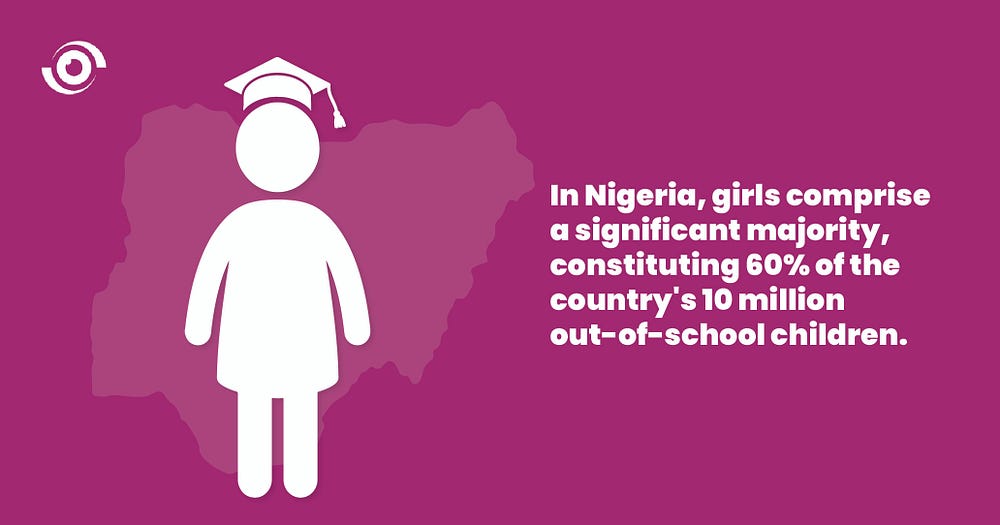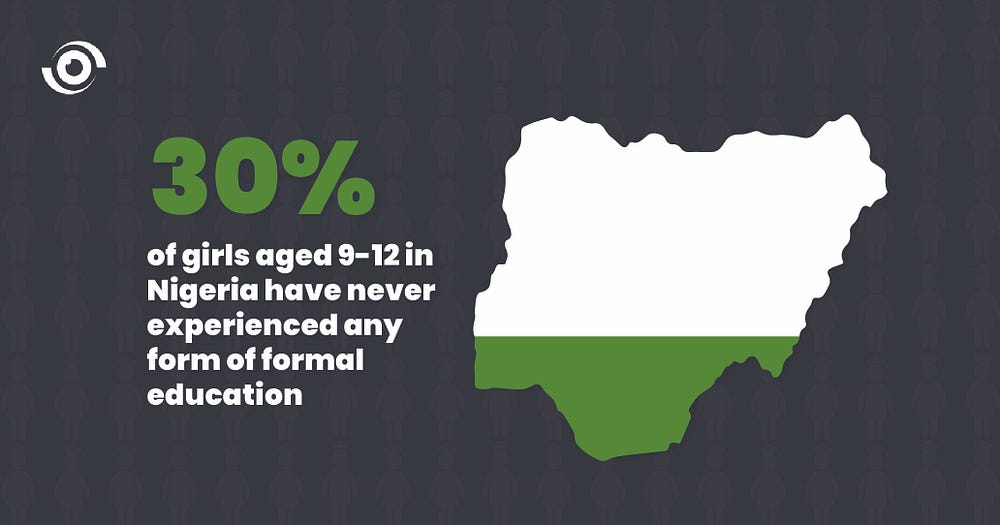Sunday Oko and Onyedikachi Ewe (Lead Writers)
Editor’s note: Another International Day of the Girl, another reminder that we are still a long way from closing the gender equality gap. In this Thought Leadership article, Sunday Oko and Onyedikachi Ewe address how we can go “beyond words” to invest in girls’ rights for an equitable future.
The International Day of the Girl is observed every year on October 11th. The theme for 2023, “Invest in Girls Rights: Our Leadership, Our Well-being,” calls for urgent attention and efforts to move beyond reviewing commitments to actually making bold investments in the steps required to close the global gender gap index.

The multiple dimensions of gender discrimination, as well as the gender equality gap, puts girls at risk of sexual violence, human trafficking for sexual exploitation and early marriage. All of which deprives girls of their rights and hampers them from reaching their full potential. According to the World Economic Forum, closing gender gaps in sub-Saharan Africa will take 102 years at the current rate of progress. Therefore, urgent and deliberate measures are required to invest in girls’ rights, health, education and leadership development.
At the recently concluded United Nations General Assembly (UNGA) 2023, world leaders and development `agencies reiterated their commitment to improving gender equality and empowering girls more sustainably. The issue remains, however, whether these commitments are translating into concrete improvements in the lives of girls? Are the required resources being allocated and policies being implemented to address the root causes of gender inequality? What practical steps can Nigeria take to empower and promote the rights of girls?
Education as the Cornerstone
Investing boldly in the International Day of the Girl means prioritising education. In Nigeria, girls make up a significant majority, accounting for 60% of the country’s 10 million out-of-school children. They face significant challenges, such as child marriage, poverty, and discriminatory social traditions. Disturbingly, 30% of girls aged between nine and twelve years old in Nigeria have never received any formal education.

This figure underscores the critical need for bold investments and interventions focused at breaking down these barriers and prioritising education for girls.
Nigeria may address these difficulties and aim towards equal educational opportunities by investing in initiatives that improve education for girls, such as financial aid through scholarships. Ensuring that girls receive a quality education empowers them and has far-reaching positive benefits on the country’s growth, including increased health, economic prospects, and general social improvements.

Breaking Down Barriers
A tangible investment in girls should also include breaking down societal barriers. These include challenging harmful stereotypes and norms that limit girls’ aspirations and potential. According to the most recent data from April 2023, Nigeria remains on the lowest rung of the ladder for female representation in African Parliaments. The Inter-Parliamentary Union (IPC), a recognised source for such statistics, has failed to update its information on Nigeria, citing the recent general elections as the cause for the delay. However, the figures for the lowest-ranking countries in terms of female parliamentary representation currently stand at 8.62% in unicameral or lower chambers of Parliament and 6.67% in upper chambers.

In sharp contrast, Nigeria’s 10th National Assembly trails significantly behind, with a combined ratio of women in both chambers falling below 5%. Investing boldly in International Day of the Girl means creating safe spaces where girls can voice their opinions, express their creativity, and develop leadership skills. It requires dismantling discriminatory laws and practices that perpetuate gender inequality.
To empower girls in politics and decision-making, we should focus on their education, mentorship, and inspiring role models. We must create opportunities for girls to engage in youth programmes, raise awareness, and advocate for policies that support their participation. Involve communities, foster supportive networks, and ensure fair representation in the media and within political institutions. By nurturing these efforts, we are not just promoting gender equality, but also giving girls the opportunities to excel in all sectors.
Economic Empowerment
Economic empowerment for girls is another key component in effecting real change. Investing in programmes that provide girls and young women with skills training, mentorship, and access to financial resources can have a significant influence on their lives and communities. When girls have economic independence, they are more likely to make decisions that improve their well-being, and the well-being of their families.
The International Day of the Girl serves as a timely reminder that gender inequality is a persistent issue that requires sustained and bold action. It is important to hold individuals who make these commitments accountable for tangible results. Investing boldly in girls means prioritising education, breaking down societal barriers, economically empowering girls, and, most importantly, listening to their voices.
To reverse the trend of gender biases as we commemorate International Day of the Girl Child, it is essential to take concrete action. These actions include advocating for gender-equal policies, fostering critical thinking, promoting quality education, supporting female leadership, breaking down stereotypes, promoting gender-equal parenting, providing safe spaces for girls, investing in economic empowerment and educating boys and men.
Although legislation prohibiting child marriage exists, such litigations should be enforced to ensure the rights and safety of the girl child. This day should be about more than words; it should be a commitment to challenging gender biases and empowering girls for a more equitable future.

